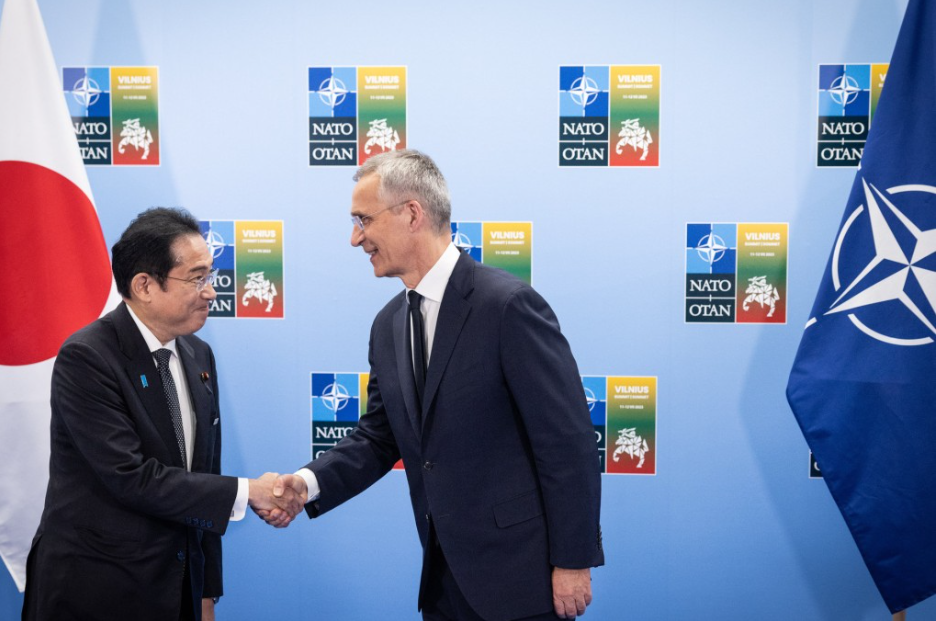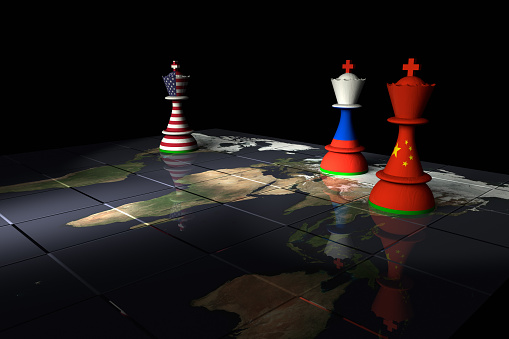
Sebastian Contin Trillo-Figueroa, Geopolitics Analyst in EU-Asia Relations and AsiaGlobal Fellow, The University of Hong Kong
Sep 29, 2023
Since the end of World War II, the West’s hegemonic power has been synonymous with the NATO alliance. Decades later, the scope of NATO’s cause has expanded far beyond the “North Atlantic,” and is now locking horns with an ascendant China.
Zhang Yun, Associate Professor at National Niigata University in Japan, Nonresident Senior Fellow at University of Hong Kong
May 16, 2023
Extended deterrence by the U.S. and ROK, as well as the framing of security as a regional issue requiring alliances, illustrates the spread of NATO-style security thinking. From China’s perspective, this will result in a further imbalance in the region’s security order and requires resolute opposition.
Leonardo Dinic, Advisor to the CroAsia Institute
Dec 22, 2022
As the U.S. seeks to advance its position and strengthen the U.S. dollar global dominance, it is also facing challenges and an anti-hegemonic sentiment from other states. Events such as the war in Ukraine, tensions between the U.S., Russia, and China, as well as new strategic partnerships developed between China and Europe, Latin America, and Africa, are driving forces in the shift of balance of power to non-Western nations.
Brian Wong, Assistant Professor in Philosophy, HKU and Rhodes Scholar
Jul 29, 2022
NATO’s global hegemony has gone unchallenged since the fall of the USSR decades ago. Now, with China’s rise to global prominence and arguably the second most powerful nation in the world, can NATO avoid another Cold War-style showdown on the global stage?
Sun Chenghao, Fellow, Center for International Security and Strategy, Tsinghua University
Jul 13, 2022
A significant step in the Biden administration’s effort to realign NATO is the attempt to link the Atlantic and Pacific strategies. The U.S. is doing this in part by amplifying the so-called China threat in the Asia-Pacific and exporting the NATO concept of alliances against big powers.
Yang Yao, Professor, China Center for Economic Research and the National School of Development at Peking University
Apr 05, 2022
The Ukraine war has put China in a bind. As a friend of both Russia and Ukraine, China has no desire to pick a side. On the contrary, conventional Chinese wisdom dictates that, when two friends fight each other, the primary objective must be to end the conflict through mediation. While China’s balanced stance has aroused more than a little suspicion, it could end up hastening the end of the war – and easing tensions with the United States.

David Shambaugh, Gaston Sigur Professor of Asian Studies and Director of the China Policy Program, George Washington University
Mar 30, 2022
As the global community turns against an increasingly isolated Russia, China’s silence on the topic becomes more easily interpreted as support for Putin’s war. The untenable stance will be sure to drive more friction between the West and China and puts China’s foreign interests in further jeopardy.
Leonardo Dinic, Advisor to the CroAsia Institute
Jul 22, 2021
Rhetoric at NATO’s recent summit intensified the U.S.-China rivalry in global affairs. Now that the U.S. is in competition with China, will NATO member states follow suit?
Apr 03, 2019
Ministers meeting in Washington are set to discuss perceived security challenges from Beijing.
Zhou Bo, Senior Fellow, Center for International Security and Strategy, Tsinghua University
Dec 19, 2016
If the Shanghai Cooperation Organization (SCO) accepted Turkey as a member state, that could serve to improve the NATO-Russian relationship, further promote SCO economic integration, and add strength in counteracting terrorism, separatism and extremism, the primary goals of SCO. Russian suspicions of Turkey, however, pose one of several challenges to the idea.